Professional excavation services that protect your investment and keep your project moving forward smoothly.
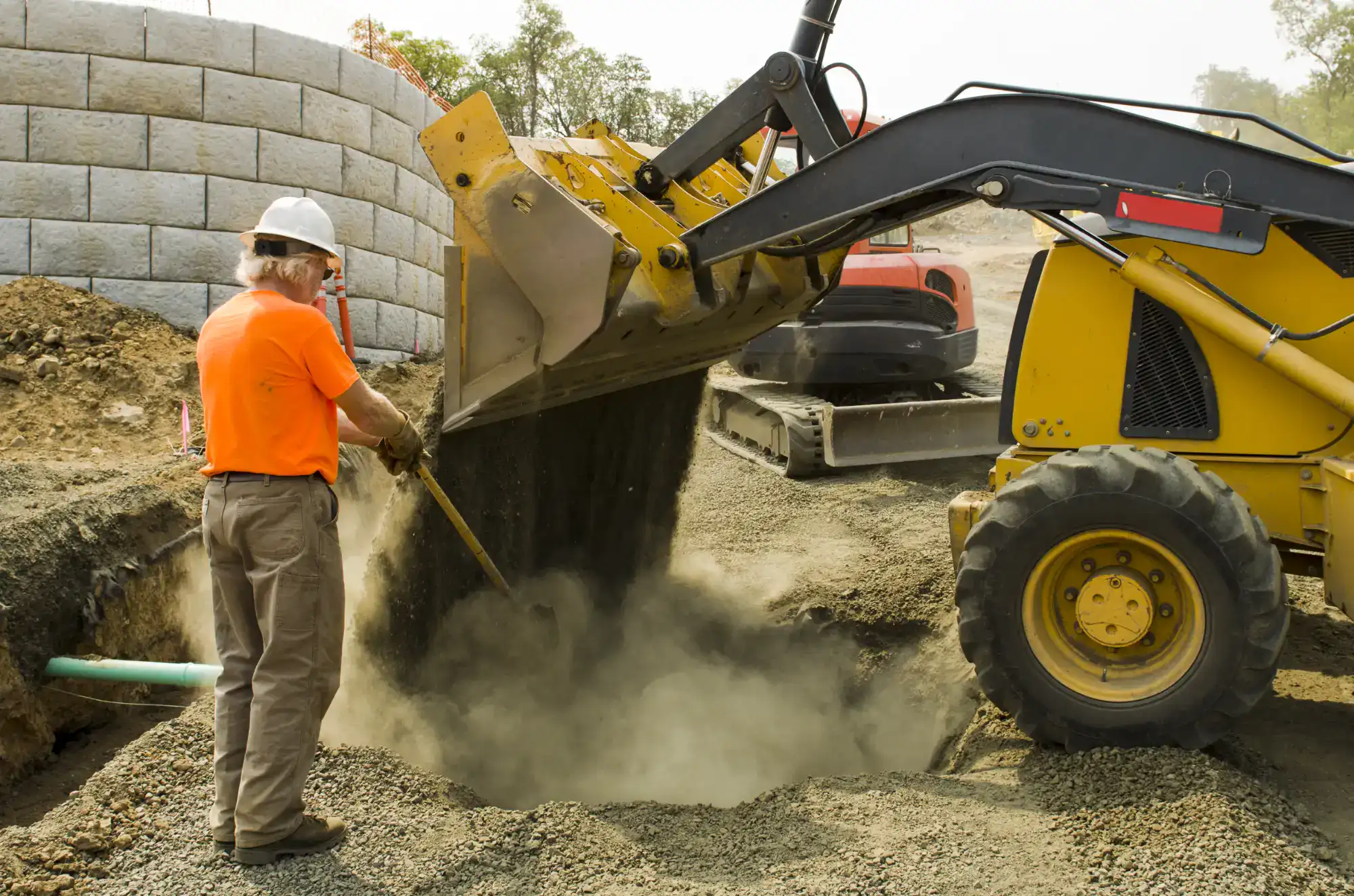
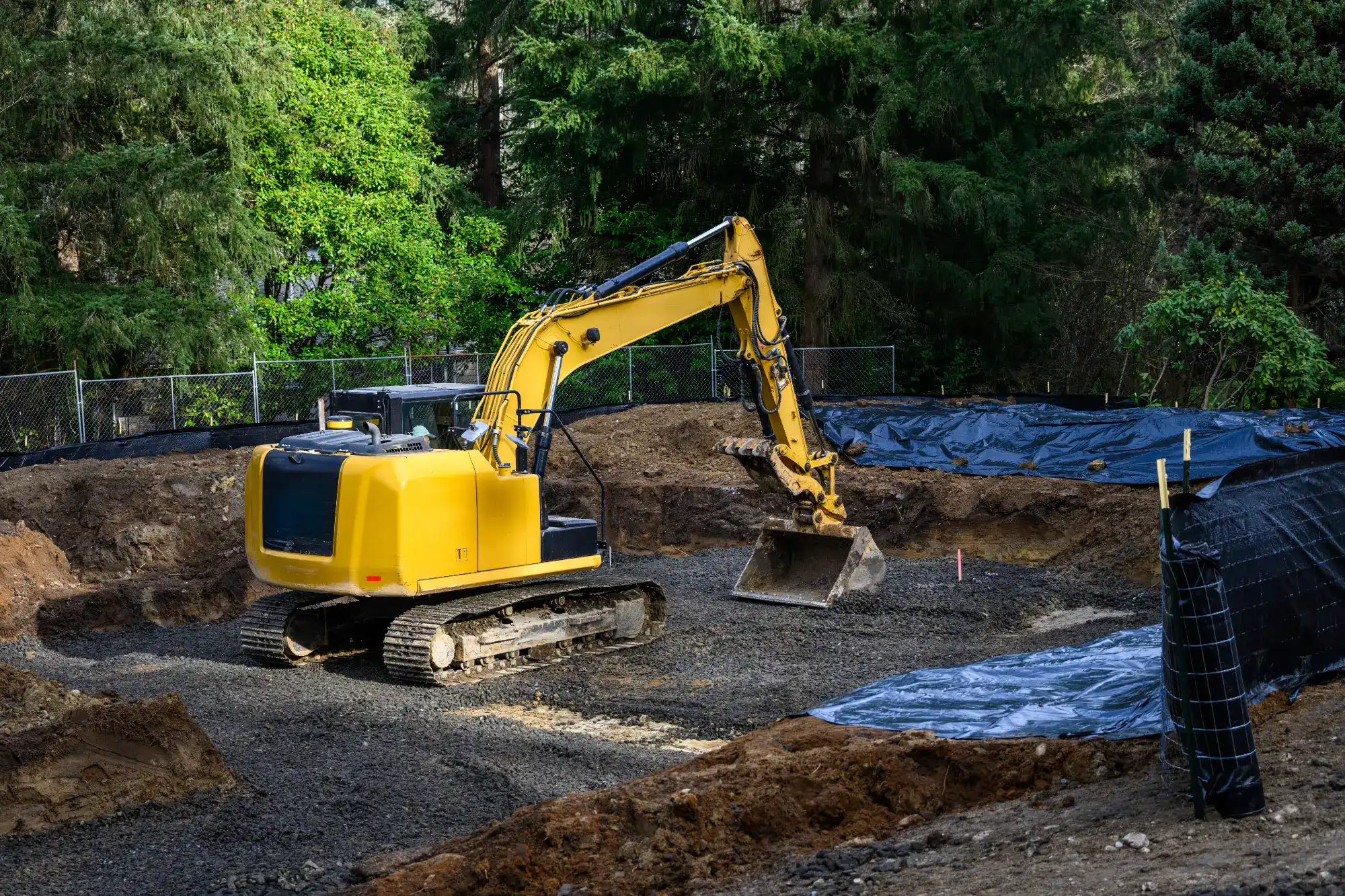
You get a foundation that won’t settle. Drainage that actually works. A septic system that passes inspection the first time.
When excavation is done right, everything else falls into place. Your concrete contractor isn’t dealing with uneven surfaces. Your inspector isn’t finding problems that delay your timeline. Your basement stays dry during heavy rains.
Most importantly, you’re not dealing with expensive fixes down the road. Proper site preparation and foundation excavation prevent the kind of problems that cost thousands to repair later. You invest once, and it’s done right.
Emerson Excavating and Trucking has been handling excavation projects throughout Coveville and the surrounding area for years. We know local soil conditions, understand seasonal challenges, and maintain relationships with local inspectors.
We operate modern equipment that’s maintained properly and sized right for residential and commercial projects. We’re licensed, insured, and focused on doing quality work that passes inspection the first time.
When you call, you’re working with contractors who live and work in this community. We understand what it takes to get projects done right in this area.
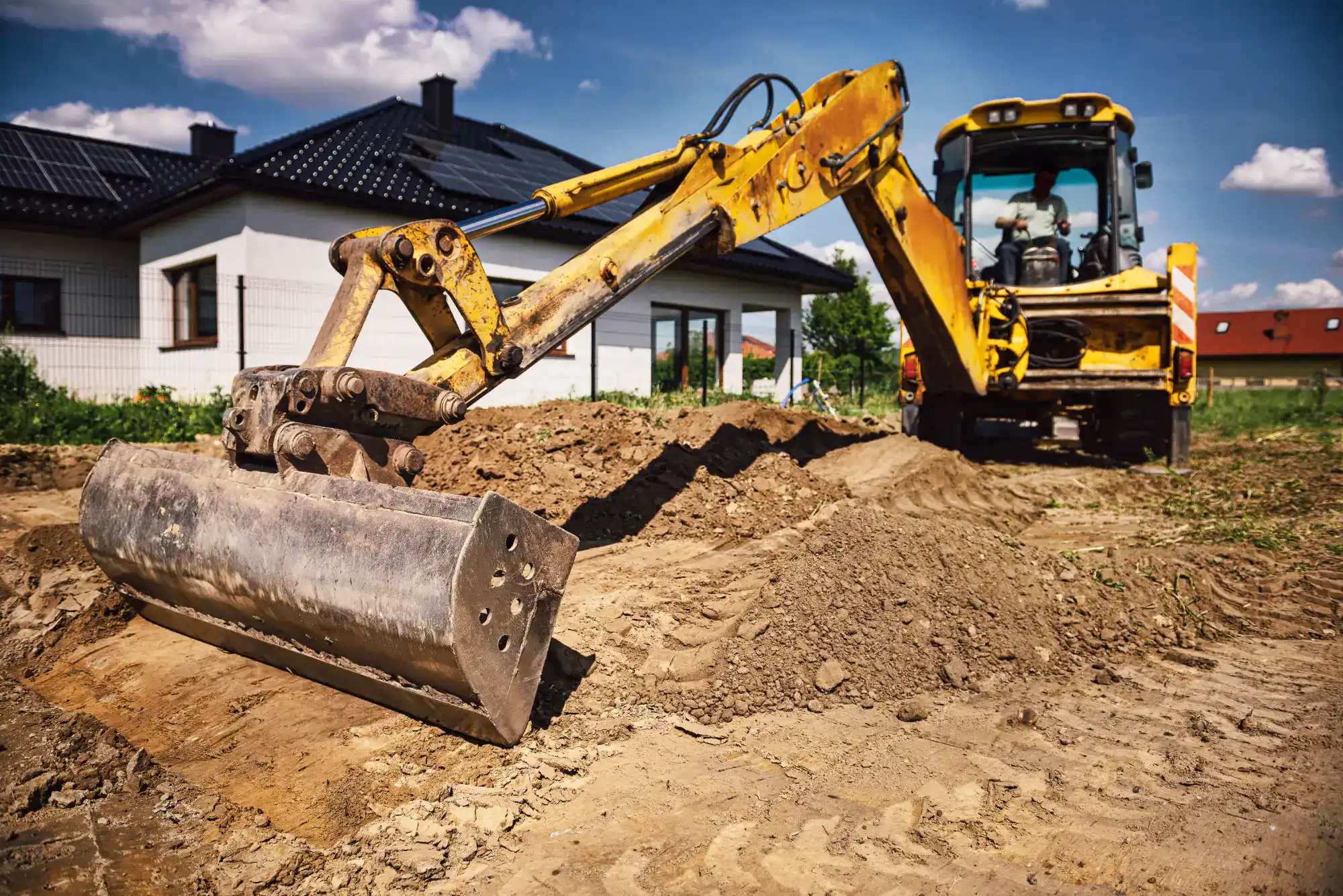
First, the site gets surveyed and marked for utilities. No surprises, no damaged lines, no delays waiting for repairs.
Next comes the actual excavation work. We dig to exact specifications, maintain proper slopes, and handle soil removal or grading as needed. We work efficiently but don’t rush the details that matter.
Finally, everything gets cleaned up and prepared for the next phase of your project. Your site is ready for concrete, septic installation, or whatever comes next. The inspector sees work that meets code, and your project stays on schedule.
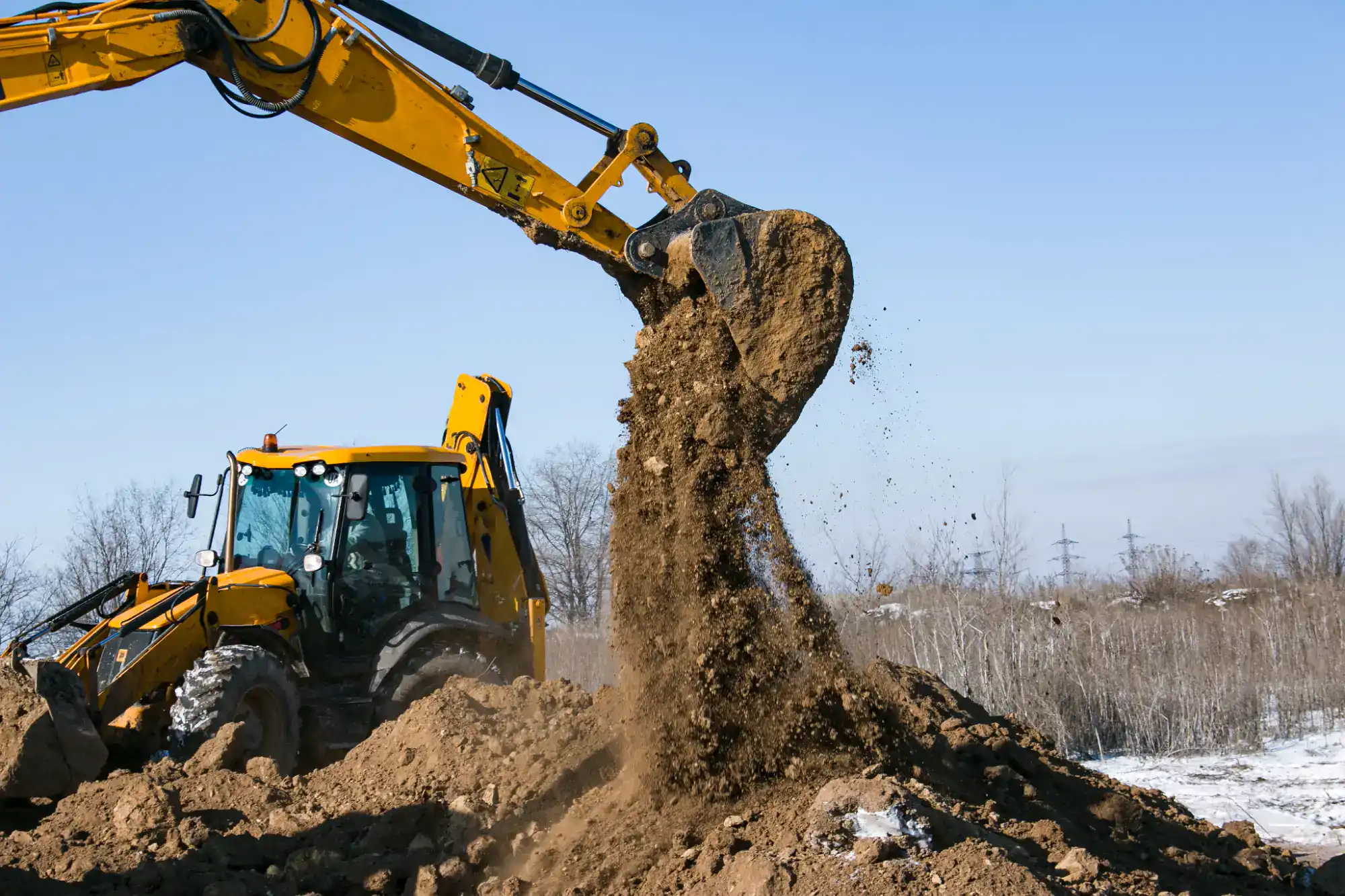
Ready to get started?
Foundation excavation includes proper depth, accurate dimensions, and grading that prevents water issues. Site preparation covers land clearing, grading, and soil compaction that creates a solid base for construction.
Septic system installation involves excavation for tanks and leach fields, proper bedding material, and backfill that won’t settle over time. We handle permit requirements and work with inspectors to ensure everything meets local codes.
Whether you’re building new, adding on, or upgrading an existing system, you get excavation work that’s done to specifications. No shortcuts, no guesswork, no problems that show up later when they’re expensive to fix.
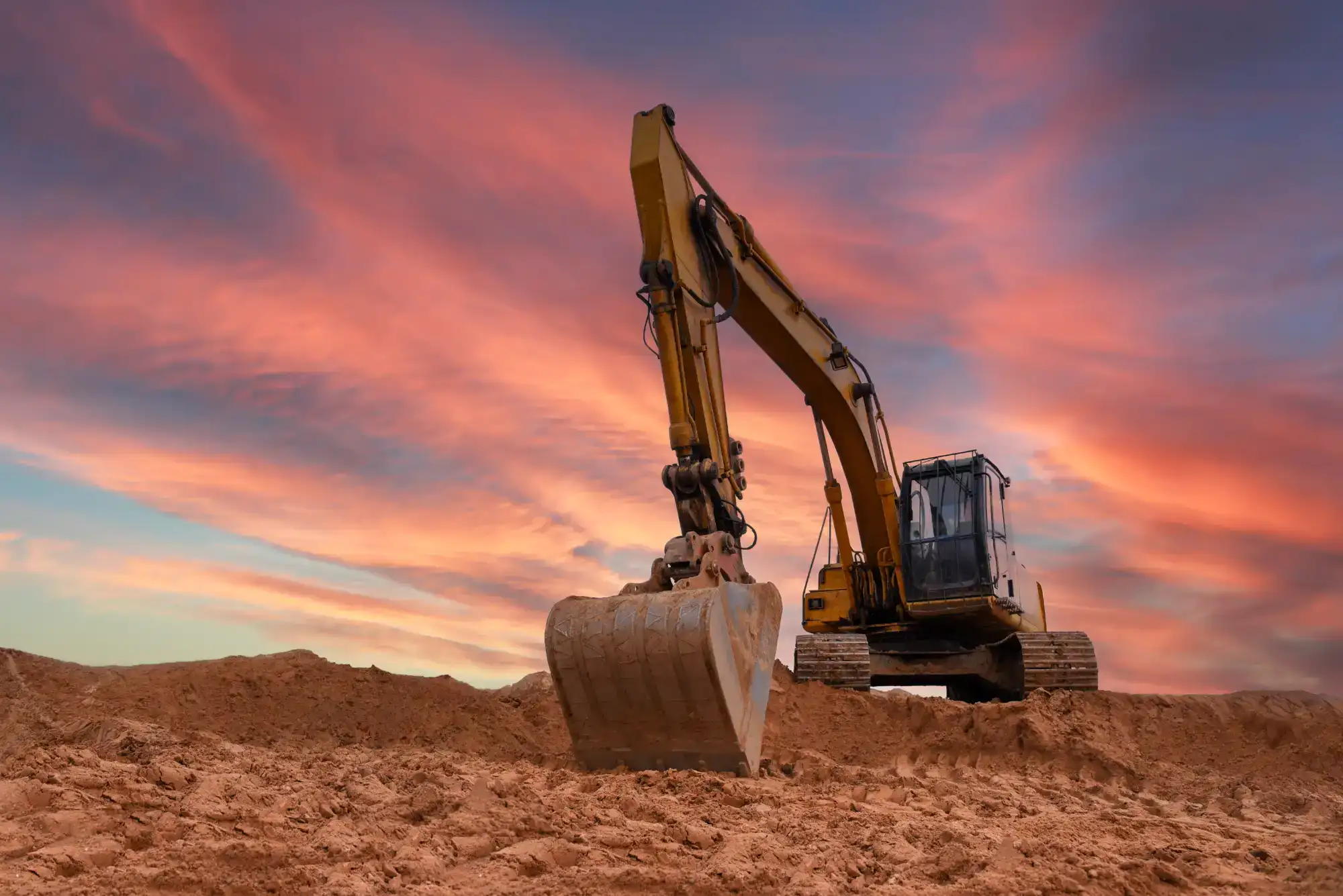
Other Services we provide in Coveville